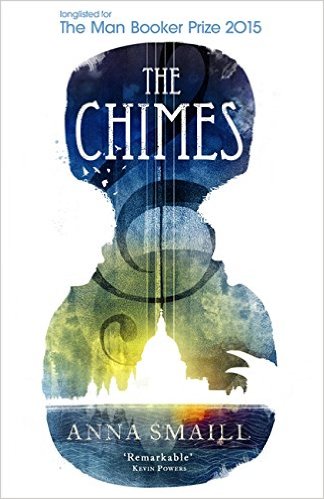Anna Smaill’s debut The Chimes is a symphony on the page, sometimes quite literally. The novel does sit comfortably within the dystopian genre, but Smaill’s angle is fresh and thought-provoking. We are introduced to a world that has clearly regressed from our own: horses and carts once again dominate the roads and at first there is no sign of the modern technology integral to our everyday lives. However, disturbing ruins of our own civilisation emerge as Simon, our narrator, begins his life in London. As he and his fellow “pactrunners” navigate the underbelly of the city they come across old tube platforms, train tracks and relics of technology, referred to as “electrickery”. The language of the novel is full of these recognisable, but mutated, words, and musical terms, “subito”, “tacet”, “lento”, permeate everyday speech, much as music permeates the everyday lives of Smaill’s characters.
The lyrical language of the novel, and the transformed vocabulary of this future England, convey masterfully the musical experience of life for the characters. It only emerges as the reason for the underlying sense of unease as Simon progresses on his quest. Smaill’s portrayal of music as a weapon, a method of oppression, is original and subverts its predictable role as a tool of resistance in dystopian fiction. All too often a degeneration in the arts and skilled trades is associated with an unthinking human race, but here Smaill cleverly turns this stereotype on its head. Music thrives in her future society and everyone plays an instrument, but The Order’s use of it is one that destroys individual and collective memory, creating a society that is almost completely static.
Smaill cleverly recreates this cycle of amnesia for the reader through her omission of periods of time in the narrative, and through the repetitiveness of parts of Simon’s day-to-day narrative. However, memory begins to bubble up for Simon, and the reader follows as he slowly manages to grasp a sense of linear time and memory. This self-realisation is contrasted against the almost uncorrupted sense of infinite present which most of the populace seems to inhabit and the “blankness” that comes with it. Yet Simon’s enlightenment is not independent, he must, of course rely on the strange, seemingly omniscient Lucien to direct him. Then, of course, the pair must fight to overturn the well-intentioned but inevitably cruel Order. Smaill doesn’t quite manage to avoid all the tropes of dystopian fiction, and surprisingly it is when the action really starts to unfold that she struggles to sustain the pitch of the narrative.
Although the intricacies of the plot leave a little to be desired at points, the relationship between Lucien and Simon is expertly written, defying the memory loss that renders ties between many other characters shallow and easily forgettable. Through Simon, it seems simultaneously natural, inevitable, while also uncertain, that their friendship might crescendo into something more, though frustratingly Smaill does not give any clues as to how homosexuality would be treated by her dystopian society (where interestingly the patriarchy still seems to reign supreme).
In all, The Chimes is a novel constructed of vivid, intense language, which manages to achieve the near impossible of conveying and conducting sound and music to the reader. Smaill’s ideas are original and challenging, and at points she manipulates form expertly to enhance the themes within the text. As the narrative quickens, the plot does becomes more predictable, but the language and characters still maintain the reader’s submersion till the end, making The Chimes an orchestral triumph.







